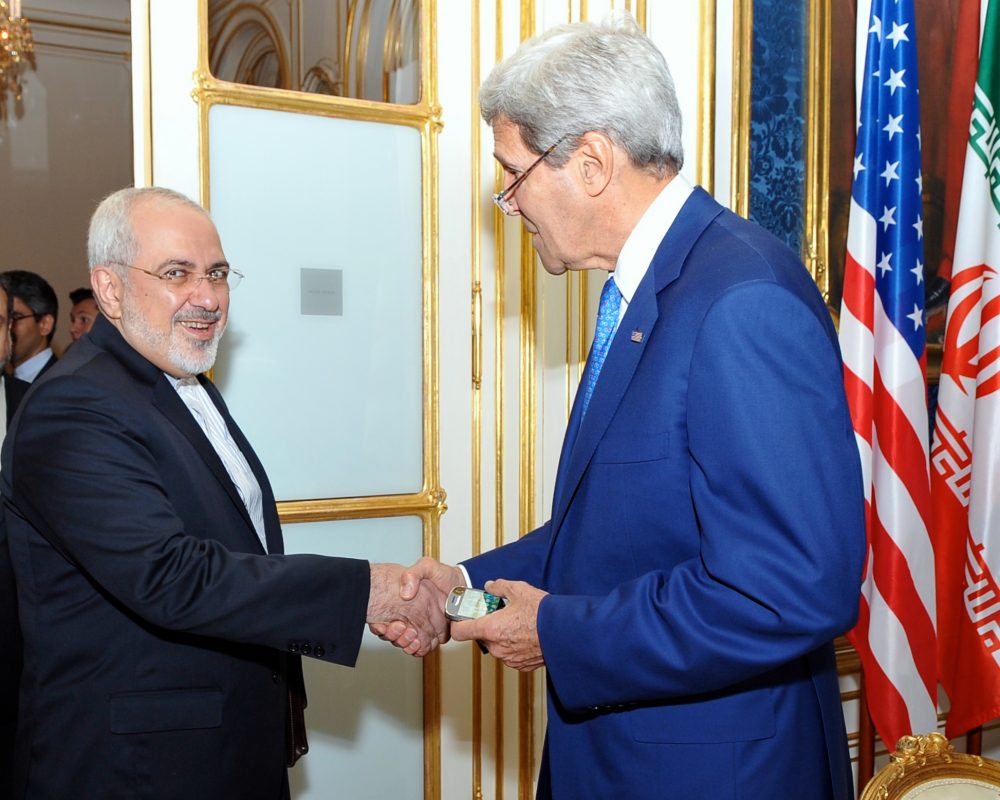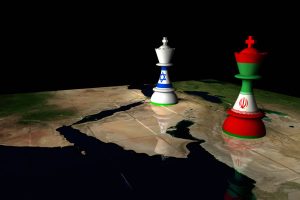Iran’s Supreme Leader, Ayatollah Ali Khamenei, in the past did not seem to wish to discuss topics linked to his successor — — the next Supreme Leader. Nevertheless, recently the trend has altered. Khamenei has begun dictating his policies, preferences, and priorities in what kind of Supreme Leader he would rather the Iranian regime have, and who, after his death, the Assembly of Experts ought to choose.
In a recent meeting, the 76-year-old Ayatollah Khamenei met with some members of the Assembly of Experts, and pointed out that “a supreme leader has to be a revolutionary” and he advised that members not to “be bashful” in selecting the next Supreme Leader.
Iran’s constitution yields the Supreme Leader the greatest authority in the country. The Supreme Leader is the single most crucial figure, the highest-ranking political and religious authority in Iran. He directly or indirectly controls the three branches of the government; the judiciary, the legislature and the executive branch.
But what does a “revolutionary” exactly mean to Khamenei? From Khamenei’s perspective, a revolutionary supreme leader would be someone who forcefully pursues the ideological principles of Ayatollah Ruhollah Khomeini, the founder of the Islamic Republic, and the core ideals of Iran’s 1979 Revolution.
Since Khamenei took power in 1989, he has shown no deviation from Khomeini’s revolutionary ideologies. Opposing the United States, “the Great Satan,” and the rejection of Israel’s existence are two of the most critical pillars of Iran’s revolutionary ideals — what defines the raison d’être of the Iranian regime, as well as what shapes Khamenei’s ideological and foreign policy.

Who’s next? Ayatollah Ruhollah Khomeini (left) founded the Islamic Republic of Iran in 1979. He hand-picked Ayatollah Ali Khamenei (right) as his successor for Supreme Leader. Now Khamenei seems to be setting the stage to choose his own successor. |
Khamenei believes that Iran would lose its Islamic character, its legitimacy, its appeal among its supporters and the essence of its revolution, as well as endanger the survival of its theocratic political establishment. if it were to shift its stance and its policies towards the U.S. and Israel.
Khamenei is the second longest-ruling autocrat in the region. For him, his adherence to these revolutionary ideals are the real reasons behind his success in ruling for more than two decades. In addition, he sees that these are the underlying factors that made his regime immune from powerful opposition, popular uprisings and revolutions such as those in other countries in the region.
Other revolutionary core values that Khamenei desires the next supreme leader to hold include supporting Palestinian and Lebanese armed groups against Israel, maintaining Iran’s nuclear program, and being the vanguard of Islam and the supreme leader of the entire Islamic world — not only the leader of the Shiites. Khamenei’s official website refers to him as “the Supreme Leader of Muslims,” not the Supreme Leader of “Iran.”
Iran’s domestic and foreign policy is anchored in the three pillars of preserving the revolutionary ideology, national interests (regarding economic, strategic and geopolitical spheres) and Iranian nationalism. Khamenei is a firm advocate of prioritizing ideological norms over the other two backbones of the regime.
Khamenei is playing the same game that was played when he was chosen as the Supreme Leader. In this video, one can see how the former president and founder of the Iranian regime, Akbar Rafsanjani, and Ayatollah Khomeini chose Khamenei as the next Supreme Leader.
Unlike what the mainstream media depicts, the Assembly of Experts will not play a crucial role in determining who will be the successor to Khamenei. The Assembly of Experts is a ceremonial political body, with 86 members, who are said to determine the country’s next supreme leader.
It is important to point out that the Assembly of Experts is mainly a rubber-stamp organization; its 86 members were already vetted by the subjective decisions of the hardline political body; the Council of Guardians. The twelve members of the Council of Guardians are appointed directly by the Supreme Leader (six members), and indirectly (nominated by the head of the judiciary and appointed by the Supreme Leader).
The Islamic Revolutionary Guard Corps (IRGC), a hardline branch of the military that was once the child of Iran’s Islamic revolution and has since been transformed into the “Big Brother” of the Iranian regime, is another extremist organization that is acting hand-in-hand with Khamenei to choose the next Supreme Leader behind closed doors.
Khamenei’s efforts to direct the decision of the Assembly of Experts does not reflect the notion that he is concerned that this political body might elect a disqualified person as the next Supreme Leader.
Instead, Khamenei’s latest remarks highlight the notion that he and the senior cadre of the IRGC are setting the stage to elevate their favorite choice for the next Supreme Leader of the Iranian regime.
Dr. Majid Rafizadeh, an Iranian-American political scientist and Harvard University scholar, is president of the International American Council. He can be reached at Dr.rafizadeh@post.harvard.edu or followed at @Dr_Rafizadeh







































